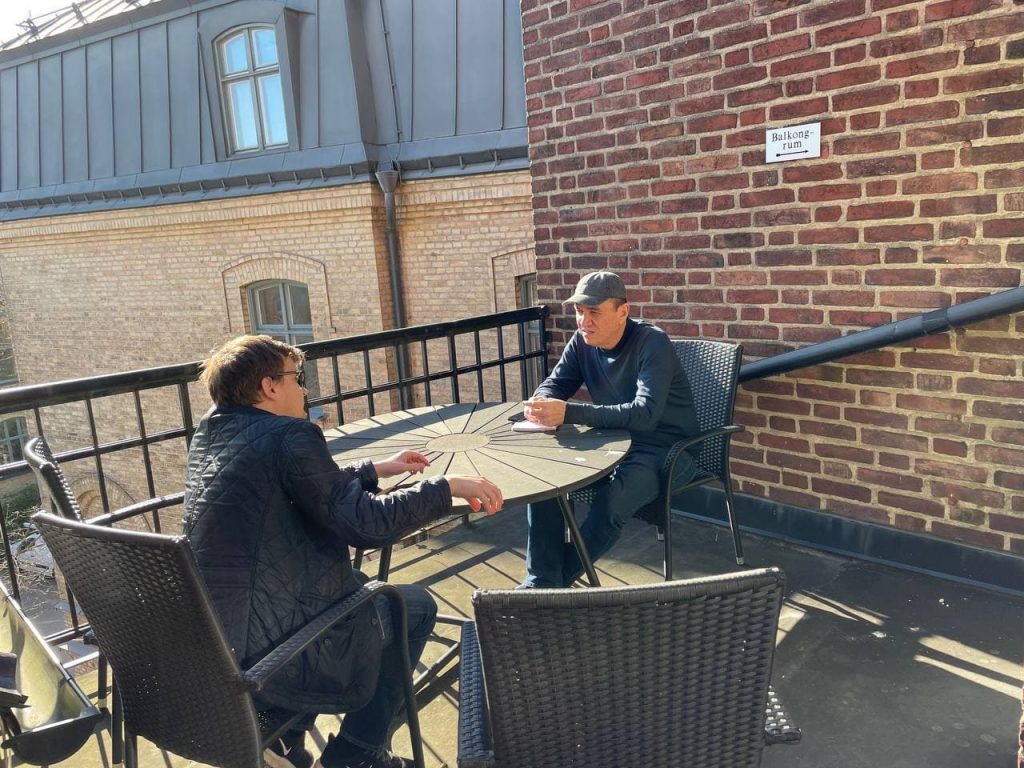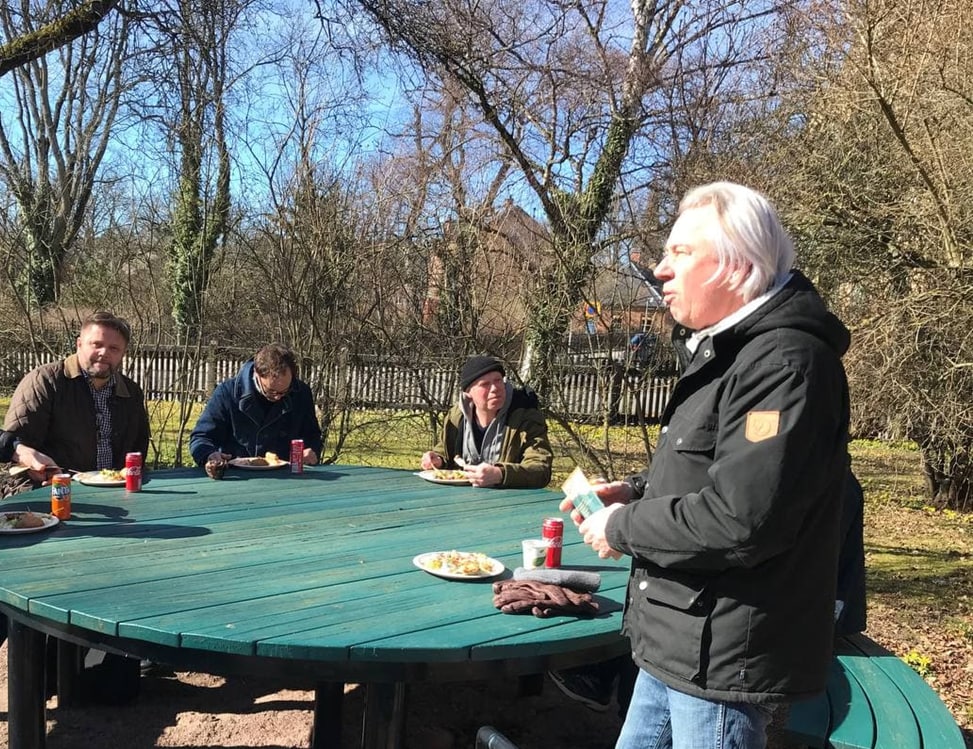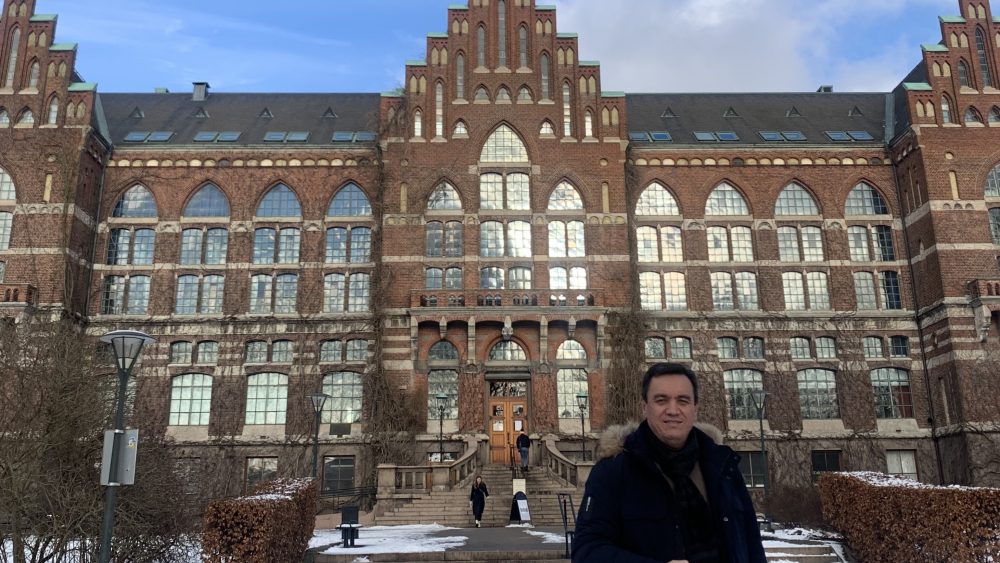I am Azizbek Hamidov. In this blog post, I would like to share my secondment experience at the Department of Sociology of Law, Lund University. My secondment started on the 1st of May within the framework of the Central Asian Law project. Such an internship in one of the leading European countries, where the observance of human rights and the standard of living is highly appreciated, provides an excellent opportunity to make one’s research more effective. I moved to academia in 2018, when I started working as a senior lecturer at the Academy of the General Prosecutor’s Office of the Republic of Uzbekistan. Before embracing academic career, I was a legal practitioner and worked in various government institutions, such as the local municipality, the Ministry of Justice and the prosecutor’s office. This project provides an opportunity for me to share my experience with project participants based on the knowledge I have gained so far as a legal practitioner. As my secondment period is taking place at the time of Covid-19 pandemic, I had to adjust my research plans in order to comply with the local regulations and restrictions in Sweden. However, with the support of project managers, I am trying to conduct as many online meetings as possible and receive information about my research. That is, this situation also allows us to more actively introduce information technology into our lives.
Unenforced court acts are not different from ordinary paper.
My research area is the enforcement of court decisions and the legal decisions and acts of different state bodies. Improper organization of the implementation of court decisions has a negative impact on the daily workings of the justice system and the effectiveness of legal governance.
Uzbekistan is one of the economically developing countries. This process cannot be successful without attracting foreign investment. A favourable and attractive investment climate in the country is ensured by the rule of law. The rule of law, as noted above, depends on their successful enforcement. In economic relations, business entities are more interested in recovering their damages, rather than the actions or sanctions taken against the offender. That is, there is a need to ensure that the adequate compensation is paid to affected parties and this will restore their violated right, and this task is the function of the executive body of the state.

Sweden has unique experience in the field of enforcement of court decisions. In the course of studying Swedish system, I see that there are some aspects worthy of in-depth study and the implementation of some of its functions in the legislation of Uzbekistan. I would like to highlight the huge help in studying the system of execution in Sweden, by my colleague Davor Vuleta who has a rich work experience at the Swedish Enforcement Authority. He is also doing PhD in sociology of law at Lund University and his doctoral thesis investigates the enforcement of debts in Swedish context.
“If you have debts or you are owed money, we can help.”
I found particularly interesting the fact that the Swedish Enforcement Authority (Kronofogden) organized its activities under the above mission statement “(https://kronofogden.se/english.html)”. Kronofogden is a state body under the Ministry of Finance and is subordinate to the government.
One of the functions of this body is to partially repay or release the debt for five years while ensuring the stability of the personal and family economic status of debtors in the collection of debt under certain executive documents. The intended goal is to restore the economic situation of some category of individuals by partially or completely releasing them from debt.

This procedure serves to achieve the state body, not as an organization that collects debts in public relations by applying legal measures (sanctions), but rather, it evokes the idea of itself as a state body that helps creditors to collect debts faster, and debtors to get rid of debts as soon as possible and more conveniently.
Efficiency of activity or the rule of human rights?
Most scholars in the Central Asian region view the area I am studying, i.e. enforcement proceedings, as a stage of civil procedure. Perhaps this is why research in this area is rare in the countries of the former Soviet Union. In the course of my research, I have witnessed that some aspects and effectiveness of the practice of enforcement proceedings in the Republic of Uzbekistan can serve as a model for Sweden and many other developed countries.
Our national legislation provides for strict and rigorous measures against the debtor, and as a result, high efficiency is achieved. Of course, efficiency is always preferable, but in the conduct of enforcement proceedings should not be forgotten not only the interests of the creditor but also the basic rights of the debtor. The complexity of the industry is also such that it is important to make a decision that is legitimate and mutually beneficial in the process. So in this case I see that the approach of the Swedish Executive Body to Enforcement is attractive in terms of its sociological nature.
Difference in research area of host and home institutions
Research in our country is mainly based on the “white spots” in the legislation and/or foreign experience. It is important to study the extent to which legislation works in practice, how it affects the life of society, and why in some respects existing laws do not always work and “unwritten laws” come into force. Such an approach to research serves to raise the most pressing issues, increase their effectiveness and applicability. The difference of the research focus on these aspects of the project, and the methods of collecting analytical data using sociological surveys, are becoming a new experience for me.
Fika

The Swedes are big fans of “fika”, a coffee-break, which has turned into a concept, a state of mind, an attitude and an important part of Swedish culture. In one of the fika organized by the project managers by following the quarantine rules, I met Professor Per Wickenberg, who is one of the experts in the field of sociology of law. During our conversation, I had the opportunity to exchange views on the sociology of law, its role in society and its differences from the subject of “law”.
My overall impressions
Lund is a small town in the south of Sweden, which is also known as a student city. Lund University (LU) is a Swedish state higher education institution, founded in 1666. The University has a city-type campus in Lund. Today, it is one of the top 100 universities in the world in terms of the quality of education, according to the QS World University Rankings (77). All facilities for students and researchers, including access to the library, information resources, and dormitory selection and placement, are well established by the university administration.
Skåne, i.e. Sweden’s southernmost county where Lund is situated, is distinguished by its magnificent nature due to its geographical location between the Baltic and the North Sea. The attitude of the population to nature should be recognized.

Thanks for your support and help!
At the end of my post, I would like to thank the Heads of the Academy of the General Prosecutor’s Office of the Republic of Uzbekistan and Lund University, as well as the head of the Department of Sociology of Law Isabel Schoultz and Rustam Urinboyev for their cooperation in the project and hosting me a guest researcher in the frame of Central Asian Law project.
I wish all members of the Central Asian Law project good health and success in their research work!

